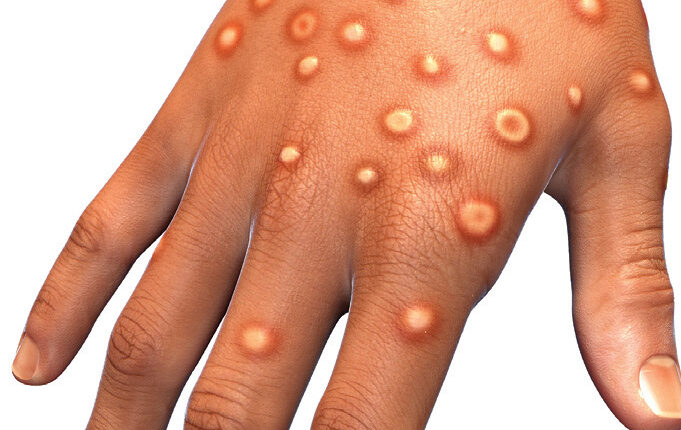As of June 18, 2025, the Ghana Health Service (GHS) has confirmed 107 cases of Mpox (Monkeypox) across the country, with no hospital admissions or fatalities reported to date. This update, available on June 22, underscores Ghana’s proactive approach to managing the viral outbreak through surveillance, community engagement, and public education.
Mpox is a viral disease caused by the monkeypox virus, a member of the orthopoxvirus family. It spreads primarily through close contact with infected individuals or contaminated objects, and presents with symptoms such as painful rashes, fever, and swollen lymph nodes. While often self-limiting, the disease can cause severe illness and scarring in some cases.
The GHS has activated a nationwide surveillance system across all 16 regions to monitor and contain the spread of the virus. In tandem, it is conducting Social Behavioural Change (SBC) activities in schools, markets, and communities to raise awareness and promote preventive practices. The agency has urged the public to remain vigilant and adhere to hygiene protocols.

“ Wash hands frequently with soap and water or resort to the use of hand sanitizer, especially before and after touching sores. Let’s also wear the nose masks ”
Ghana Health Service
Health experts have emphasized the critical role of the media in debunking misinformation and disinformation, which can fuel panic and erode public trust. “The inability to debunk misinformation and rumour would create panic, spread of the disease, confusion and lack of trust in institutions” the report warns. To counter this, the GHS is calling on media outlets to amplify accurate information, leverage social media platforms, and support fact-checking efforts to ensure the public remains well-informed.
Mpox has been recorded in over 13 African countries, prompting the World Health Organization (WHO) to declare it a public health emergency of international concern in 2024. According to the Africa CDC, more than 17,000 suspected cases and 517 deaths were reported across the continent last year alone. In response to the growing threat, the WHO approved a dedicated Mpox vaccine, aiming to improve access for millions at risk—particularly in Africa, where over 20,000 infections were recorded during the latest outbreak.
Ghana’s experience with Mpox offers a blueprint for early detection, community engagement, and inter-sectoral collaboration in managing emerging infectious diseases. As the country continues to navigate this outbreak, its emphasis on public education, hygiene, and media partnership may prove pivotal in curbing transmission and building long-term resilience.
Source: Ghana Health Service confirms Mpox cases reach 107 – Ghana Business News



